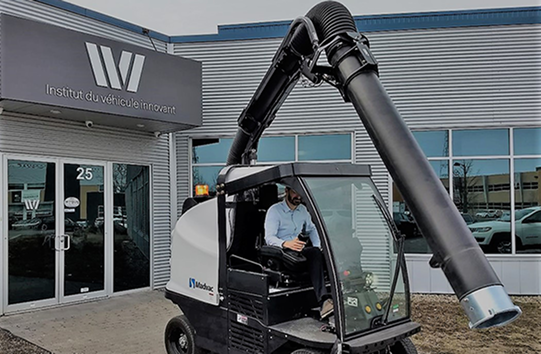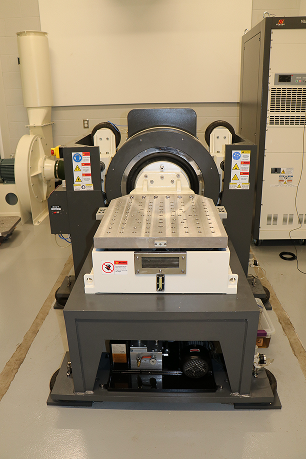Innovative Vehicle Institute: Always at the cutting edge!

The Innovative Vehicle Institute (IVI) is known above all for its projects to electrify transportation and related projects to improve energy efficiency and reduce polluting emissions. Did you know that the organization also works on developing connected vehicles, autonomous vehicles and vehicle intelligence solutions—innovative approaches to decarbonize transportation in Quebec?
Summary
|
Business : Innovative Vehicle Institute (IVI) The funding granted by CED has enabled the IVI—an organization that helps other organizations in the vehicle industry develop personalized solutions—to increase its capacity for innovation and technology transfer. |
Genesis
The IVI is a college centre for technology transfer (CCTT) affiliated with the Cégep de Saint-Jérôme. The non-profit organization (NPO) was created in April 2015 by merging two entities with common interests and similar projects: the Centre national du transport avancé and the Institut du transport avancé du Québec. The organization has since been helping other organizations develop new technologies aimed at generating positive economic, environmental and social spin-offs in the field of transportation.

Manager of the Innovative
Vehicle Institute.
The IVI and CED
Since the very start, CED has played an important role in the IVI’s development. “All of the high-tech equipment acquired thanks to CED has made its operations more reliable and opened the door to various increasingly ambitious projects,” states Pier-Luc Laurin, IVI General Manager. Among these projects, one that stands out is by Exprolink, which has designed the first 100% electric vacuum cart, along with the one by GrandTuned/Ecotuned to convert conventional vans into electric vans—both supported by CED.
As mentioned by Pier-Luc Laurin, IVI General Manager, the Agency’s assistance has also had a positive impact on recruitment and the composition of the team. “Having advanced design equipment and tools attracts highly qualified staff who want to work in an environment where it is possible to see complex projects through from start to finish. CED’s contribution thus extends beyond simple financial support; it has helped us to stay at the cutting edge of technology, reinforce our expertise, and be a leader in our field. And our clients are the ones who benefit from this.”
Paving the way for autonomus vehicules

Even if transportation electrification continues to be its most well-known area of activity, the Institute is also working increasingly on vehicle intelligence solutions to meet the growing demand among Quebec’s SMEs. Advances in autonomization, robotization and recognition of the environment are enabling it to work on designing autonomous and intelligent vehicles able to make decisions.
Since its creation, the Institute has worked on over 550 projects for nearly 230 clients and partners, most of which are manufacturing SMEs.
A leader in vehicule innovation
The IVI looks to the future with optimism and plans to expand its field of action in decarbonizing transportation, as well as in the aeronautics and maritime industries, while also continuing to develop vehicle intelligence solutions. The organization also hopes to continue to develop more advanced prototypes of battery packs and modules. Finally, the IVI wants to position itself as a leader in vehicle innovation to support the needs of organizations in Quebec and Canada and, why not, to become a reference in North America and internationally.
About college centres for technology transfer
College centres for technology transfer (CCTTs) are centres of innovation and applied research at the service of the growth of businesses and organizations. They aim to be catalysts of innovation, grounded in sustainable development, and vectors of collaboration for an economy that better matches the needs of organizations and the public.
In Quebec, there are 59 CCTTs. Together, they possess an impressive range of knowledge and equipment that make it possible to help 6000 businesses and organizations in Quebec every year improve their processes, products or practices.